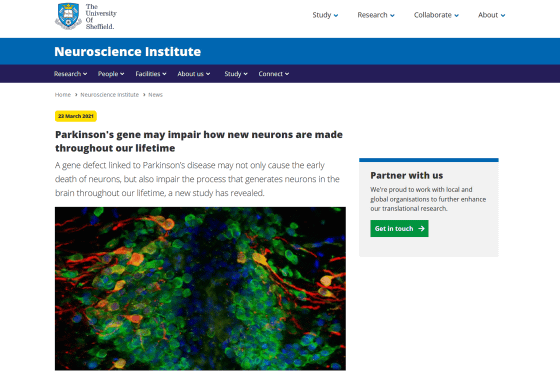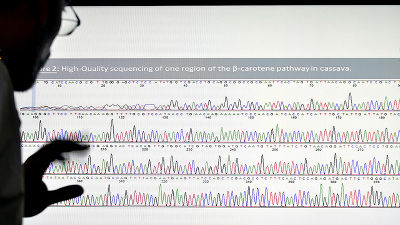Research results show that gene mutations that cause Parkinson's disease 'impair the process of making nerve cells in the brain'

PINK1 deficiency impairs adult neurogenesis of dopaminergic neurons | Scientific Reports
https://www.nature.com/articles/s41598-021-84278-7
Parkinson's gene may impair how new neurons are made throughout our lifetime | Neuroscience Institute | The University of Sheffield
https://www.sheffield.ac.uk/neuroscience-institute/news/parkinsons-gene-may-impair-how-new-neurons-are-made-throughout-our-lifetime

Symptomatology of Parkinson's disease is thought to be caused by a decrease in dopaminergic neurons that make the neurotransmitter dopamine, resulting in improper secretion of dopamine in the brain. Therefore, existing therapeutic agents are said to have a mechanism that activates dopaminergic neurons and promotes dopamine secretion.
Although it is unclear what causes Parkinson's disease, some risk factors related to aging and lifestyle have been reported, and multiple genes are associated with Parkinson's disease. I also know. One of them is a mutation in a gene called PINK1, and it is known that Parkinson's disease develops when the normal function of PINK1 is lost due to the mutation.
It is generally believed that inactivation of PINK1 kills dopaminergic neurons and reduces dopamine secretion, but an international research team led by researchers at the University of Sheffield said that PINK1 was inactivated. We focused on the relationship of 'amount of dopaminergic neurons produced'.
Oliver Bandmann , a professor of movement disorder neurology at the University of Sheffield, said, ' Neurogenesis is the process by which new nerve cells are formed in the brain. Recent studies suggest that neurogenesis continues throughout the disorder. However, the link to neurodegenerative diseases such as Parkinson's disease is not fully understood. '

In an experiment using zebrafish, which is widely used as a model organism, the research team confirmed that dopaminergic neurons continue to be produced even in adulthood, and the amount gradually decreases with age. We also found that in individuals with PINK1 inactivated, dopaminergic neuronal neurogenesis was significantly inhibited.
In this experiment, it was suggested that one of the reasons why PINK1 mutations reduce dopaminergic neurons is a mechanism that inhibits new neurogenesis. Based on this result, it is possible that the development of a new treatment for Parkinson's disease that promotes neurogenesis in dopaminergic neurons may also be focused on.
Related Posts:
in Science, Posted by log1h_ik







